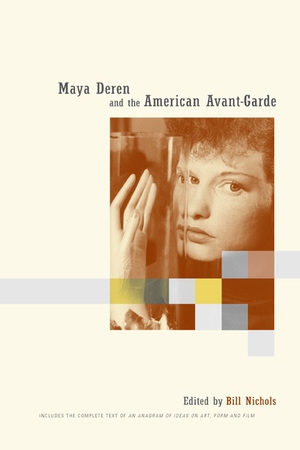Maya Deren and the American Avant-Garde


Maya Deren and the American Avante Garde
Edited by Bill Nichols
Published: 2001
Publisher: University of California Press
346 p. | ISBN: 9780520227323 | 6 x 9 | Illustrations: 38 b/w photographs
Regarded as one of the founders of the postwar American independent cinema, the legendary Maya Deren was a poet, photographer, ethnographer, filmmaker and impresario. Her efforts to promote an independent cinema have inspired filmmakers for over fifty years. Meshes of the Afternoon (1943) ranks among the most widely viewed of all avant-garde films. The eleven essays gathered here examine Maya Deren’s writings, films, and legacy from a variety of intriguing perspectives. Some address her relative neglect during the rise of feminist film theory; all argue for her enduring significance. The essays cast light on her aesthetics and ethics, her exploration of film form and of other cultures, her role as (woman) artist and as film theorist. Maya Deren and the American Avant-Garde also includes one of the most significant reflections on the nature of art and the responsibilities of the filmmaker ever written–Deren’s influential but long out-of-print book, An Anagram of Ideas on Art, Form and Film, in its entirety.
Among the topics covered in this volume are Deren’s ties with the avant-garde of her day and its predecessors; her perspective on vodoun ritual, possession ceremonies, and social harmony; her work in relation to the modern dance tradition and its racial inflections; her thoughts, written in the shadow of Hiroshima and Nagasaki, about science, including how form can embody moral principles; the complex issue of the “woman artist” in an avant-garde dominated by men; her famous dispute with Anaïs Nin; and an exploration of issues of identification and desire in her major films.